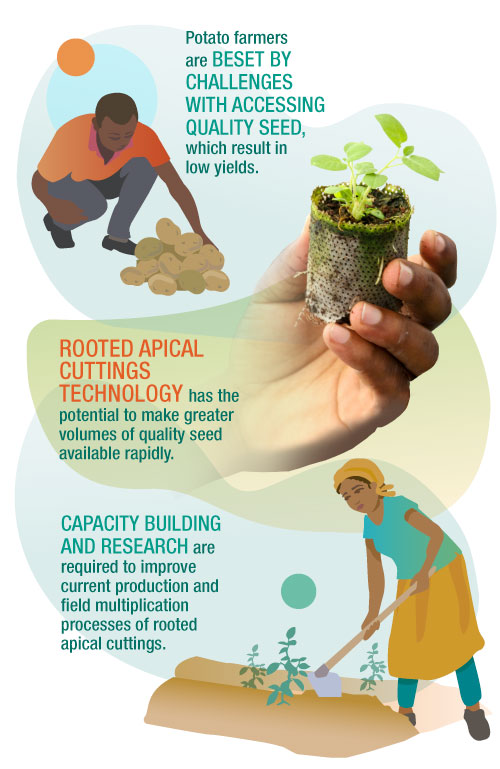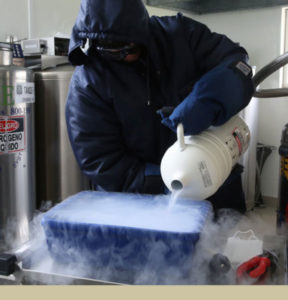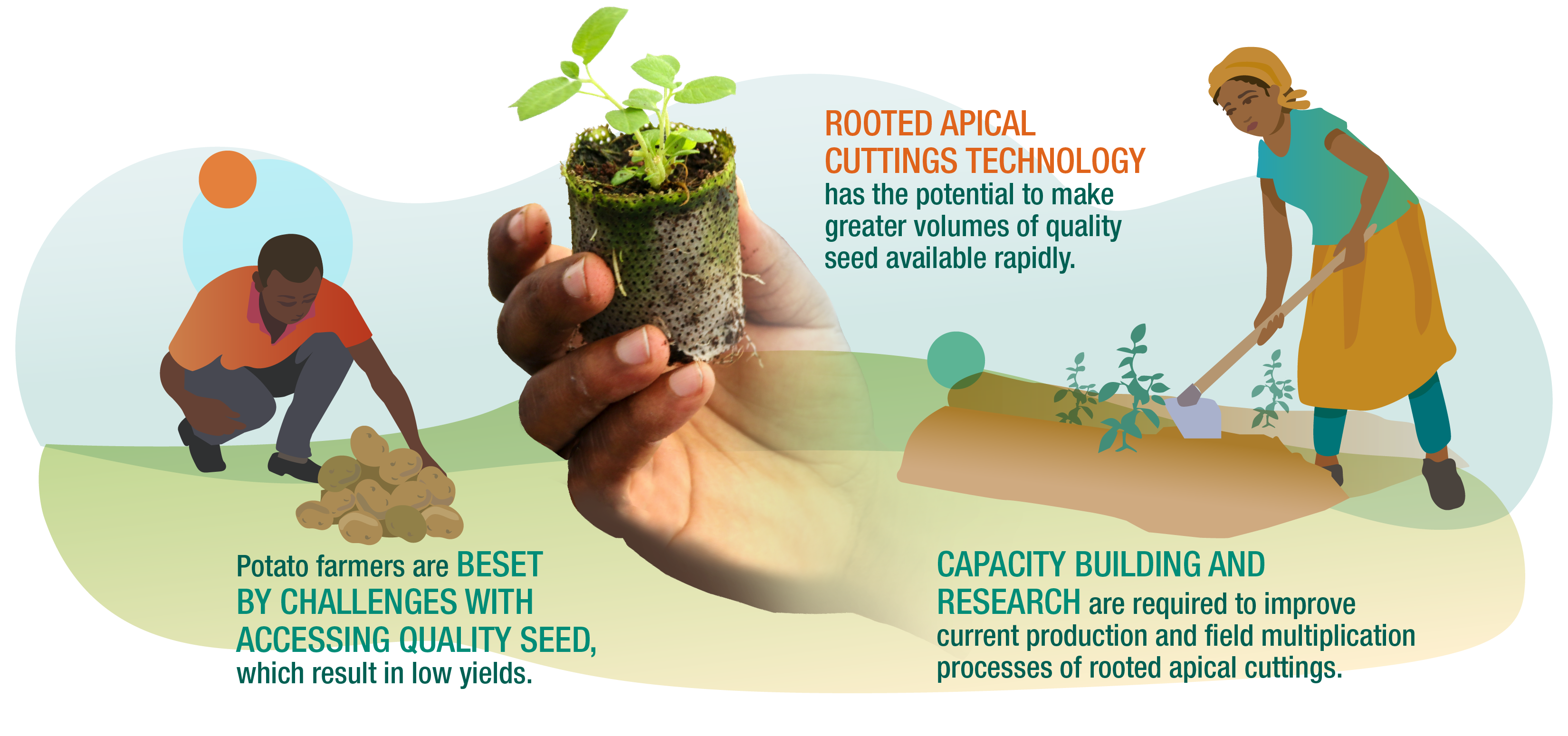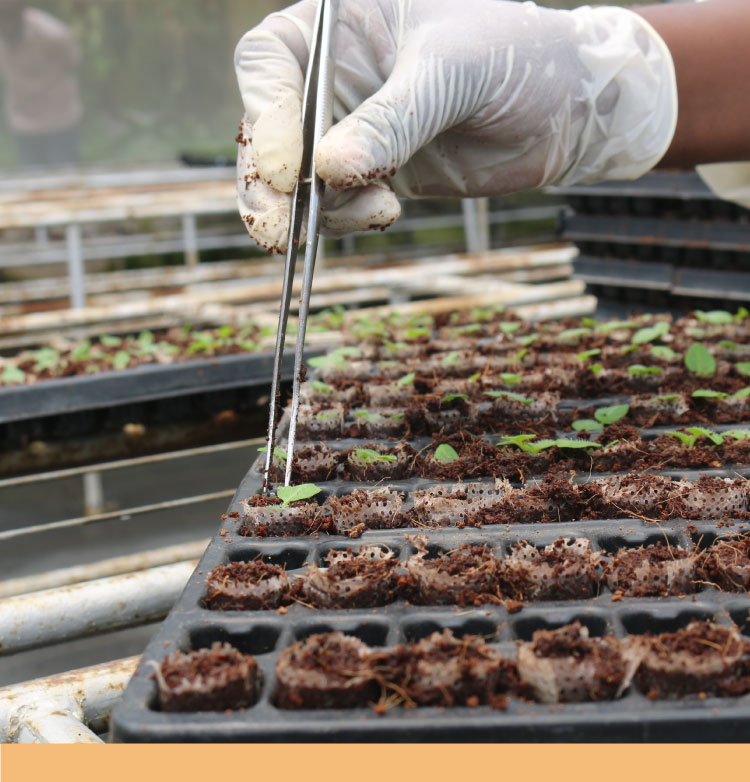INNOVATIONS
Potato rooted apical cuttings – rapid production of quality seed
- Poverty reduction, livelihoods & jobs


Adoption or impact at scale.
Available for use
Start date: 2016 | End date: Ongoing
The widespread use of seed potatoes infested with pathogens or pests is a major cause of low yields in Africa’s potato-producing countries, where a shortage of quality potato seed is a perennial challenge. In Kenya, for example, yields average 8-15 tons per hectare, about half what smallholder farmers could achieve with better inputs and practices. CIP and partners have thus made a concerted effort to expand the supply of disease-free seed potatoes and make farmers aware of the importance of using them – essential for improving yields and incomes.
Critical to seed production is starter material, which rural seed multipliers (specialized farmers) use to produce seed potatoes to sell to other farmers in their area. Traditionally, minitubers have served as starter material for seed multipliers, but rooted apical cuttings are a promising alternative. An apical cutting is a rooted transplant produced from tissue culture plants. There are normally two stages in rooted apical cuttings systems: production of cuttings in a lab and screenhouse, followed by sale to seed multipliers or potato farmers who plant the rooted cuttings to produce seed tubers.

Once planted in the field, an apical cutting produces 10-25+ seed tubers, compared to 5-10 seed tubers per minituber (at costs of USD 0.10 and USD 0.15-0.30, respectively). Given the high productivity of rooted apical cuttings, it is economical for multipliers to sell quality seed after two seasons of field multiplication, and after three seasons, it is highly profitable. This is compared to commercial seed produced from minitubers, which is usually sold after three to four seasons of multiplication. It takes a multiplier who starts with minitubers a minimum of 9 months to produce a commercial crop of seed tubers, whereas those who start with rooted apical cuttings produce a crop within 3-4 months. Using cuttings as starter material for seed production reduces the time it takes to produce commercial seed by one year compared to minitubers, boosting the profitability of seed multiplication and the supply of quality seed available for farmers.
RTB Scaling Fund; USAID; GIZ; Syngenta Foundation for Agriculture.
CGIAR Research Program on Roots, Tubers and Bananas; Farm Input Promotions Africa, Kenya; CPRI: National Potato Program of India; Kachwekano Zonal Agricultural Research and Development Institute, Bugizardi, Uganda; Buginyanya Zonal Agricultural Research and Development Institute (Kazardi), Uganda; Self Help Africa,Uganda.






